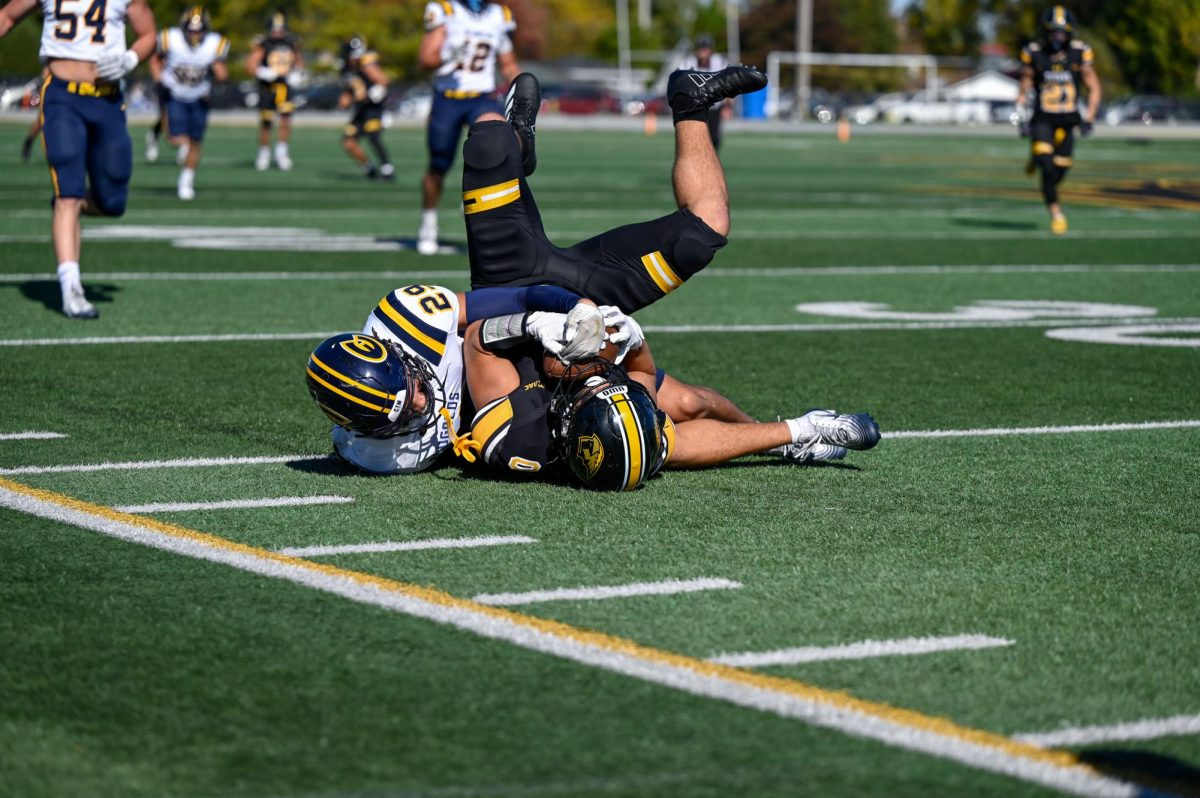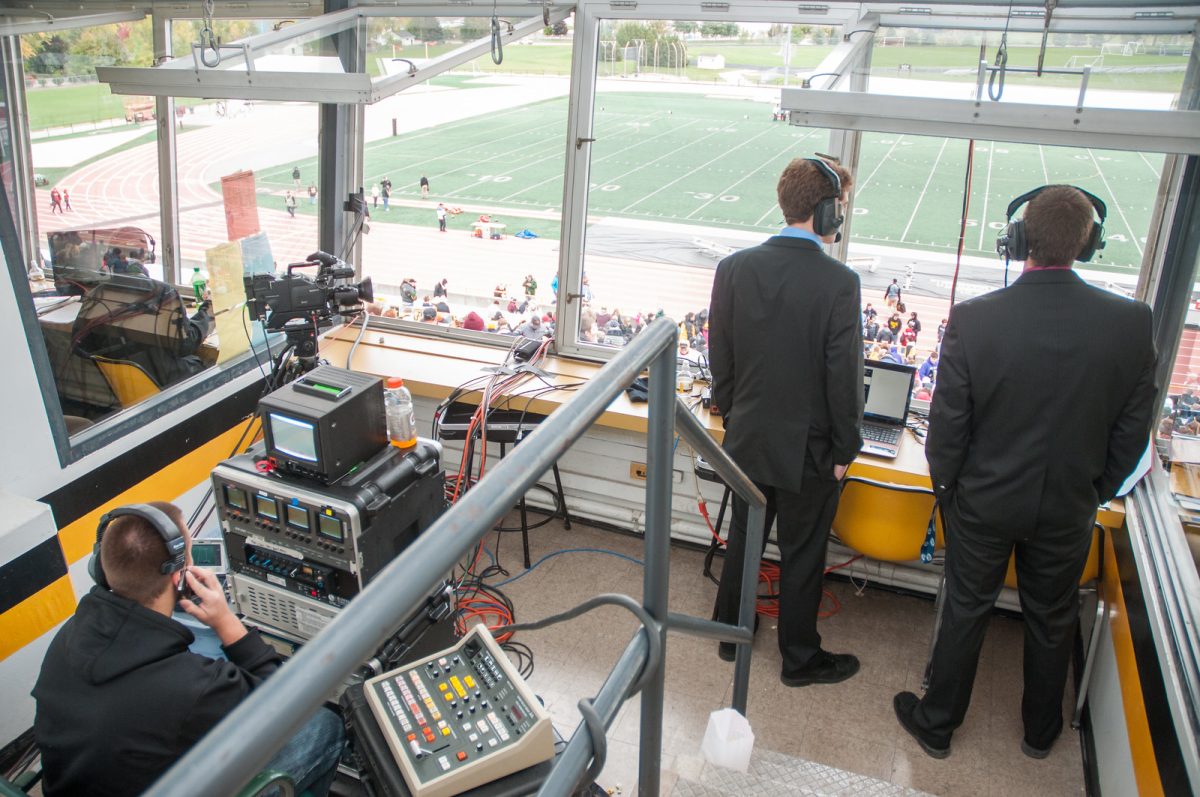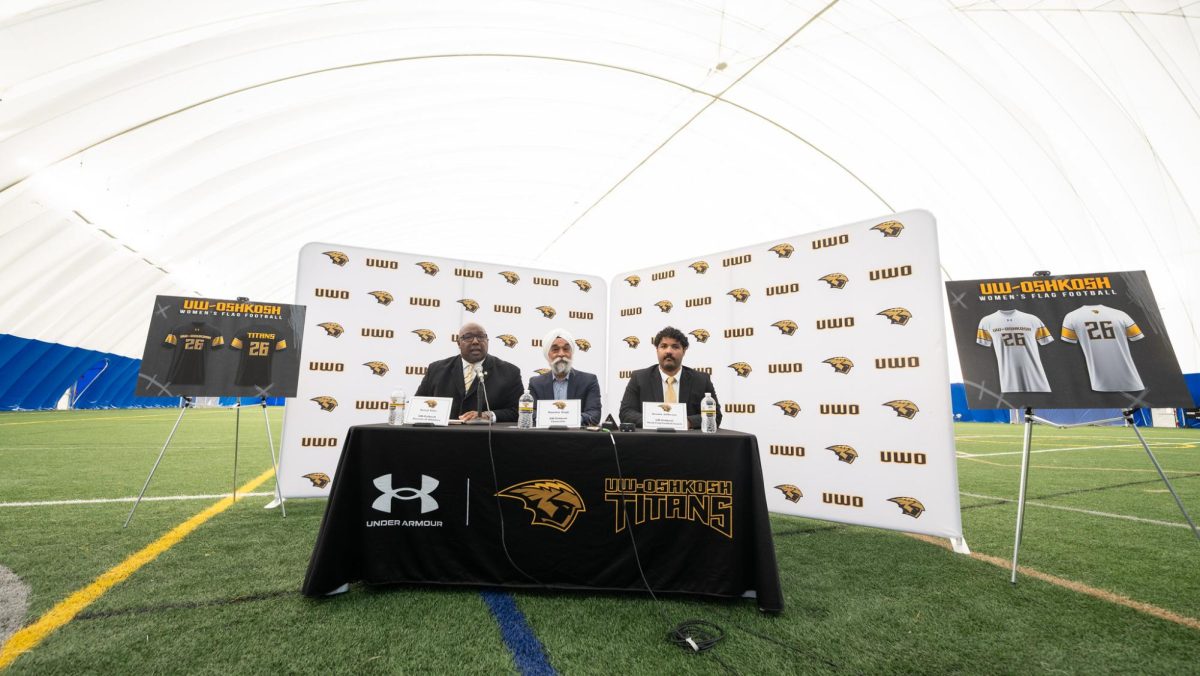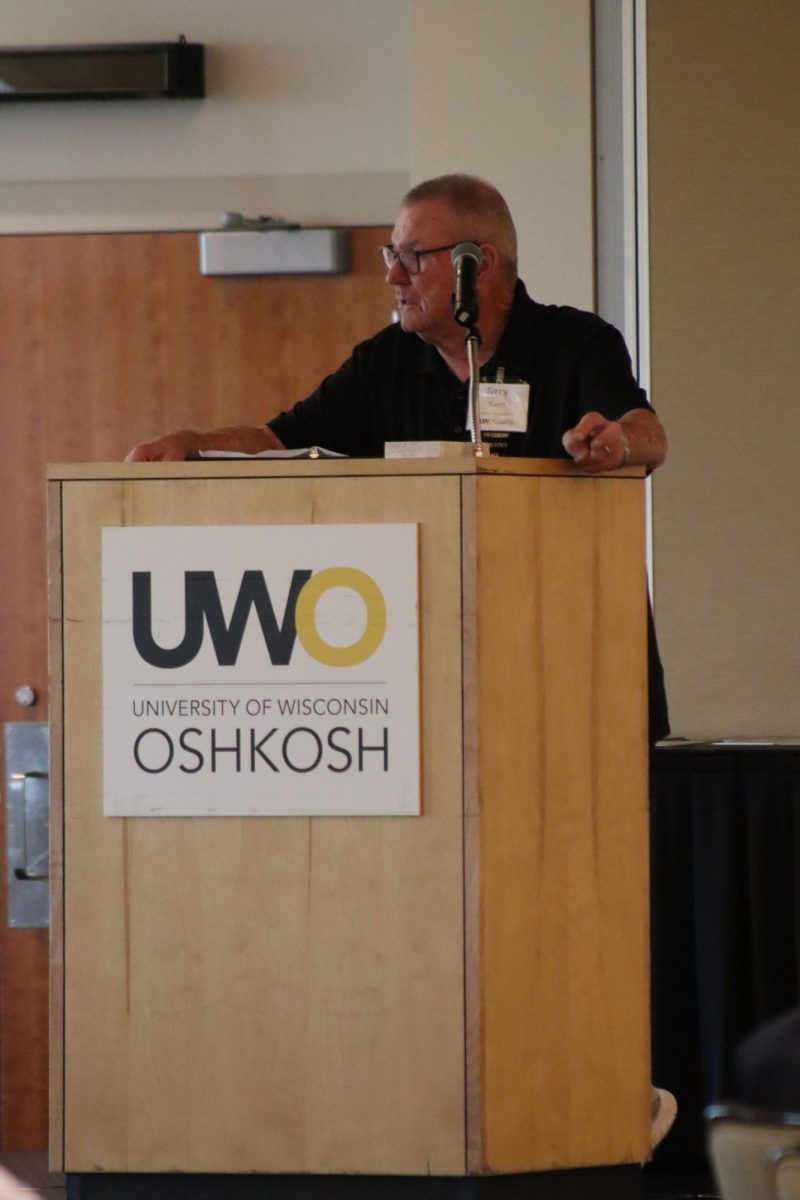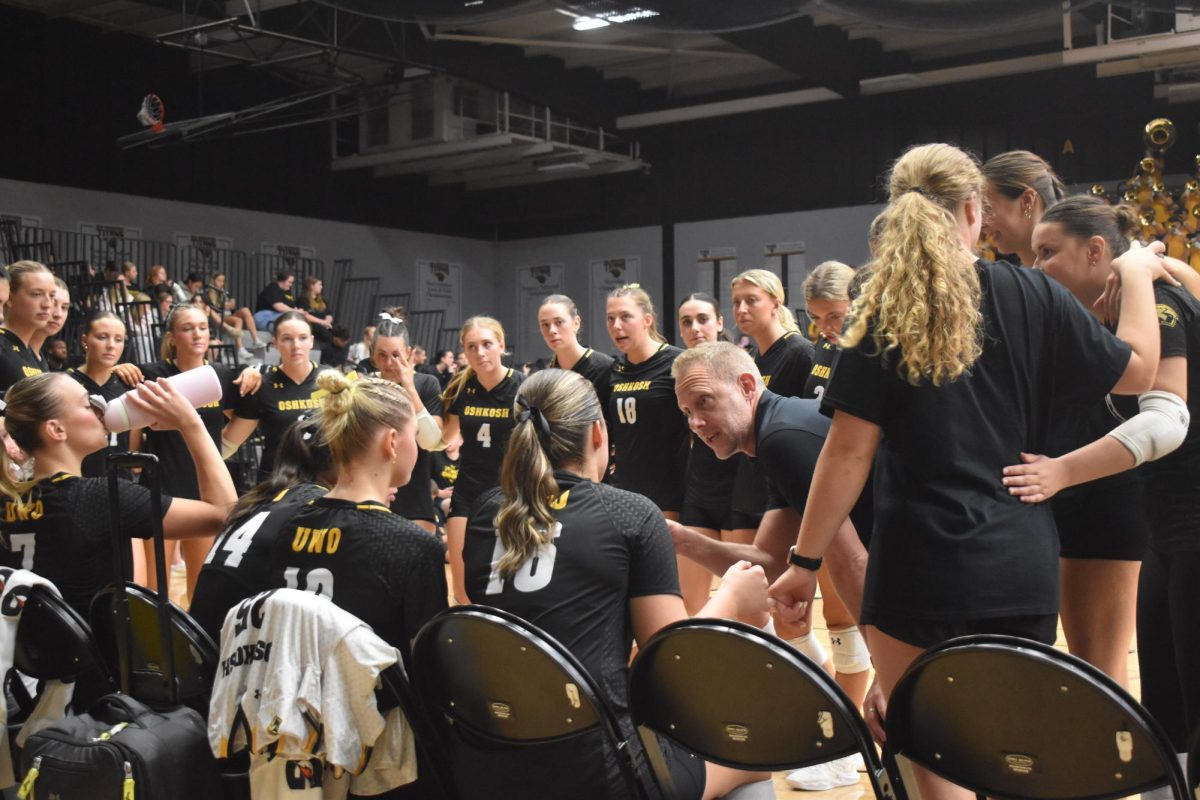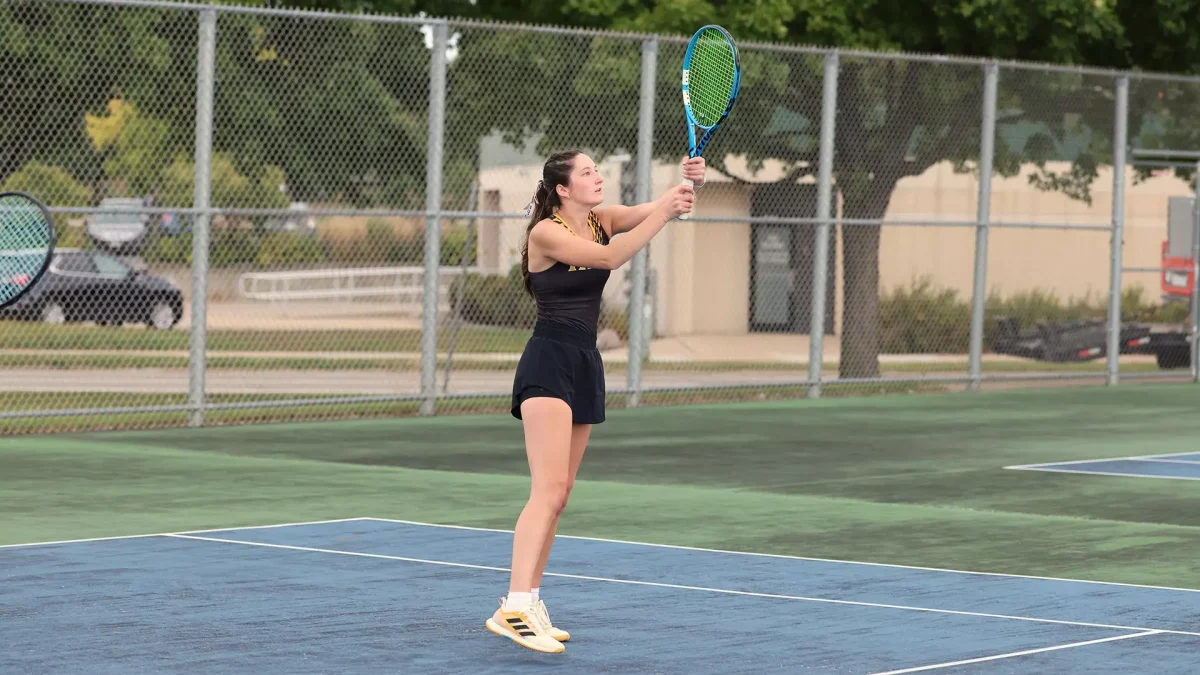UW Oshkosh women’s volleyball player Nerissa Vogt approached her senior season with high goals for herself, but her ability to play the next season took a dive as she broke her kneecap while participating in a Tough Mudder obstacle run over the summer.
Vogt ended her junior season for UWO women’s volleyball as an American Volleyball Coaches Association All-American Honorable Mention, ranked third in the NCAA Division III for blocks with 169 and led the team with a .248 hitting percentage.
Before the Tough Mudder, Vogt finished the last few matches of her junior season experiencing some tendonitis. Even though she was worried about the pain, she decided to partake in the Tough Mudder anyway.
As Vogt mounted a half pipe, she slammed both of her knees into the obstacle. Immediately, there was pain. Unable to run, Vogt limped the remaining two miles to the finish line.
When she returned home, Vogt felt as if she had to throw up due to the pain. The X-rays taken in urgent care revealed she sustained a vertical fracture in her kneecap.
The results rocked Vogt and she was unsure whether she would be able to play her senior season.
“I was in an immobilizer the whole summer and [felt] depressed because I feared losing my senior season,” Vogt said. “I was very worried. I cried every day for the first few weeks.”
Meanwhile, head coach Brian Schaefer worried about how Vogt was handling her injury and just how serious it was.
“She was our most decorated returner,” Schaefer said. “Not being able to have her would be a big let down because we knew our schedule would be tough right away. We wanted our team to be at full strength.”
After eight weeks in the immobilizer, Vogt returned to get another X-ray. Her kneecap hadn’t healed at all and was still in two pieces.
While it sounds as though this would postpone her season, the failure of her kneecap to recover enabled her to be cleared to play.
Vogt said if her knee had healed, she wouldn’t have been able to play.
“It was still in two pieces,” Vogt said. “It was good news. If it had healed, I wouldn’t have been able to play this season, but because it stayed apart I was cleared to play. Dr. Mackenzie said that was the best case because it couldn’t get any worse, I couldn’t do any more damage.”
Cleared to play, Vogt faced a decision: she could redshirt and play her senior season fully healed the next year, or she could fight through the pain and finish with the girls she started with.
Schaefer said Vogt was determined to go out with the other seniors.
“We asked her if she wanted to redshirt, but I don’t think she [would] like that,” Schaefer said. “She felt that the team could do really well. She wanted to go out with her best friends that led her through everything for four years.”
Even though she was cleared to play, Vogt had to work for playing time just as any other girl on the team.
Schaefer said he had to move some players around, including Brianna Witter, Carly Lemke and Brooke Brinkman, to fill in for Vogt’s spot.
“Nerissa had to battle for starting time and playing time,” Schaefer said. “Brooke, Carly and Bri are really good middles so Nerissa wasn’t necessarily our starter, hurt or not. It’s crazy to think she was in practice and two weeks earlier she was immobilized. It’s a testament to how passionate she is.”
Vogt’s ability to fight for playing time was limited due to her injury. In the preseason, she could only participate in certain drills for a certain amount of reps.
The day before leaving for Atlanta, Georgia for the Emory Classic, Vogt was told by the training staff that she couldn’t play in the tournament. As the year went on, she was able to play one match per day per tournament, then one day of a tournament, but Vogt was on the sideline more than she was used to.
With the role change, Vogt said she brought more spirit, energy and positivity to the team, but she longed to be on the court. Coupled with the injury itself, Vogt felt even more mental frustration.
“It hurt to be on that sideline and not being able to contribute on the court,” Vogt said. “I’d break down all the time because my senior year had brought me here and I didn’t even see the court. I was hearing from a lot of people that I should just quit and save my body.”
As a teammate and friend, senior Laura Trochinski didn’t let Vogt get too discouraged. Trochinski helped Vogt battle the mental frustrations through jokes or encouraging talks.
“Our relationship is based around joking with one another and every once and awhile I would give her a short, serious talk,” Trochinski said. “Mentally, I wanted to help her stay positive and keep pushing her so she could be out on the court with us.”
As the season progressed, Vogt fought through extreme amounts of pain. To battle it, she went through rehab for her hips and quads, facilitated by her athletic trainers. They gave her various techniques and doses of tylenol and advil along with some ice to keep her going each match.
Through her injury, Vogt learned to cherish playing volleyball even more, so when she was out on the court, she put everything she had into it, regardless of the pain.
“I learned a lot about playing time and it made me realize how every second on the court should be cherished because you never know when your last serve, pass, set or hit is going to be,” Vogt said. “I wanted volleyball more than anything, so I ignored the pain and kept pushing because the season isn’t forever.”
Vogt finished the season with 148 kills, 70 digs, 112 total blocks, 232.5 points and a .242 hitting percentage. Although her injury allowed her to start in only six matches in the first half of the season, she started in 12 of the last 18 matches including eight starts in a row heading into the home stretch of the season.
After the season finished, Vogt looked back on her decision to play rather than redshirt.
“I am happy with what I have accomplished,” Vogt said. “I always have a sense of what if, but there is no point in living that way. I got to finish with the same girls I started with and it means a lot.”



